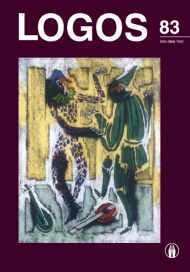Lietuviškoji Ikikritinio Kanto Recepcija – Argumentum Ex Eodem Argumento
The Lithuanian Reception of Pre-Critical Kant – argumentum ex eodem argumento
Author(s): Laurynas AdomaitisSubject(s): History of Philosophy, Metaphysics, Epistemology, German Idealism, 18th Century
Published by: Visuomeninė organizacija »LOGOS«
Keywords: Enlightenment; Kant; Leibniz; occasionalism;
Summary/Abstract: The article provides an additional argument for the hypothesis that the Lithuanian priest of piars Kazimieras Narbutas (1738–1807) was the first known critic of the pre-critical Immanuel Kant in Eastern Europe. Taking part in the discussion between Stepas Tunaitis and Dalius Viliūnas on the meaning of „Cantzius“ in Narbutas’s lectures, the article argues that the referent is likely to be Immanuel Kant . First, in the relevant part of the lectures, Narbutas not only employs the Leibnizian-Wolffian notion of substance, but also uses the same argument that Leibniz directed against occasionalists of his time. This type of argument might have been known to Narbutas through Wolff. Second, the very form of the argument suggests that the object of Narbutas’s criticism should have had occasionalist views. Such views can be found in Kant’s Principiorum primorum cognitionis metaphysicae nova dilucidatio (1755) 13th proposition. Hence, this aspect of Kantian philosophy best explains the context and mode of Narbutas’s criticism.
Journal: LOGOS - A Journal of Religion, Philosophy, Comparative Cultural Studies and Art
- Issue Year: 2015
- Issue No: 83
- Page Range: 195-202
- Page Count: 8
- Language: Lithuanian

